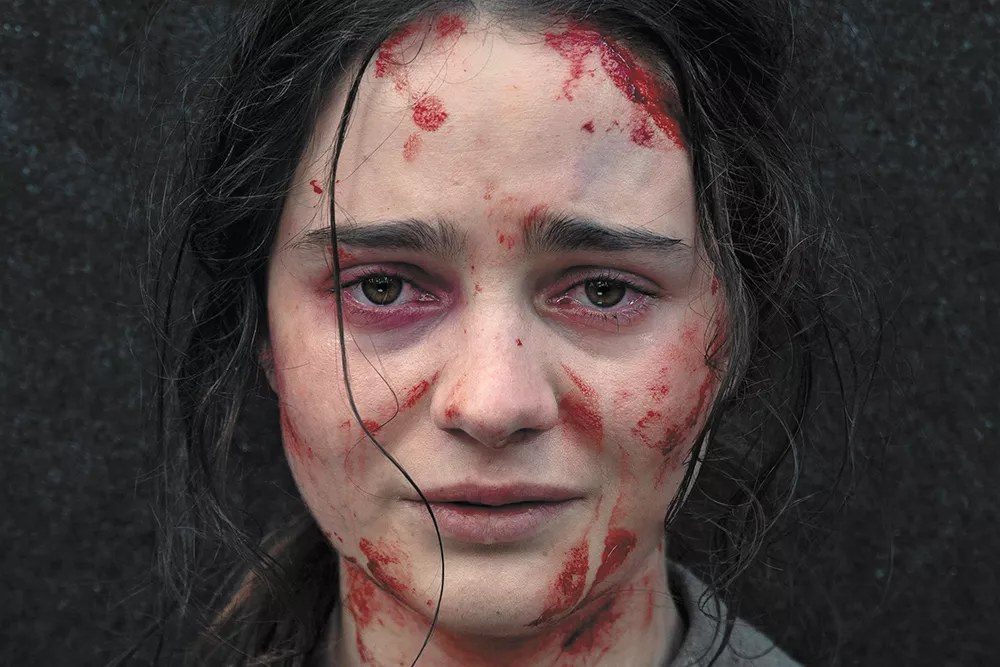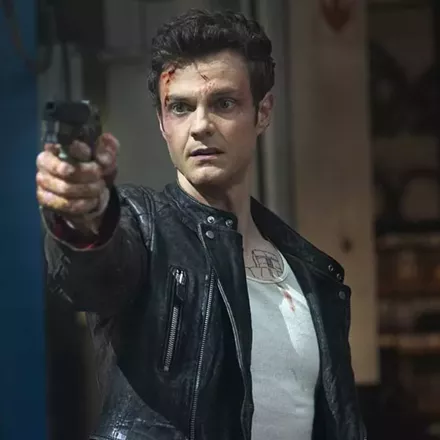It needs to be said up front: Jennifer Kent's The Nightingale is a tough movie, a story of the heartless violence and merciless cruelty that defines so much of history. You may flinch. The movie does not.
Some critics have called it needlessly sadistic. Others have called it courageous. Kent herself has said it's a movie about love. You may or may not buy that interpretation of her own art, but what's undeniable is its blunt impact. It's a deliberately grueling experience, and many people won't want to go through it at all. It's a film about the ugliness of human history, and about the evil that men — particularly white men — are capable of.
It's set in 1825, in an isolated military outpost in the Australian territory now known as Tasmania. An Irish convict named Clare (Aisling Franciosi, Game of Thrones) is an indentured servant there, working for the British Army alongside her husband and caring for their infant daughter. Clare has been relegated to the performative role of "nightingale" because of her enchanting singing voice, and one of the officers, a malevolent lieutenant named Hawkins (Sam Claflin), has decided she is his personal property.
One night, Clare defies Hawkins' advances, and in retaliation, he orders his men to attack Clare and her family. She is raped and left for dead. Both her husband and baby are killed. Clare survives, but just barely, and she sets out across the unforgiving wilderness, convincing an aboriginal tracker named Billy (Baykali Ganambarr) to help her locate Hawkins in the forests of the Outback.
This is, of course, a classic Western premise, and Kent's moral equivocations are sometimes as old-fashioned as the films she's referencing. Her attempts to equate Clare's position in life with Billy's — they've both been dehumanized and enslaved by those in power — ultimately feel disingenuous, especially since it's clear that Clare's whiteness still gives her the upper hand. And though the film's brutality is the point, it threatens to become a tad excessive, especially at nearly 140 minutes.
But it's those two central performances that help keep the film grounded. Franciosi and first-time actor Ganambarr do so much of their acting with their eyes, their respective gazes boring straight through you. Claflin, who has never made an impression on me, is surprisingly effective here: He plays one of the most despicable villains I've ever seen in a movie, and yet his performance is driven by his character's diseased pathology, not mustache-twirling theatricality.
This is Kent's second feature, following her ingenious 2014 breakout The Babadook, in which a woman's trauma and unresolved guilt manifest themselves as a storybook monster. The Nightingale is also a horror movie, though its demons aren't supernatural, and they're much more recognizable. She sets her punishing tone early on, and then challenges us to go along with the rest of it, forcing us to reconcile our feelings as we go.
When I saw the movie at this year's Seattle International Film Festival, a moment when Clare finally confronts one of her attackers elicited a smattering of celebratory applause. But it felt hollow, half-hearted. Surely it was a Pavlovian response, because we've become so conditioned to revenge narratives offering some kind of violent catharsis.
Kent doesn't take that easy route. She follows the basic framework of a violent exploitation movie in which a victim finally turns the tables on her attacker, and yet she offers none of the gratification you expect when a bad guy gets his comeuppance. Because, in reality, vengeance can be just as hollow a gesture as clapping in a movie theater, and perhaps Kent is suggesting that merely ridding the world of a few bad men won't stop it from producing many more. The roots of evil burrow much deeper than that. ♦




























